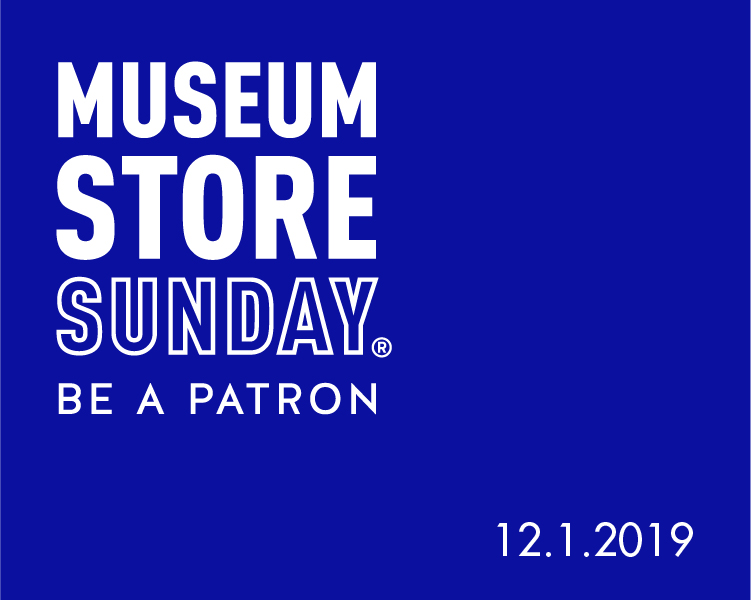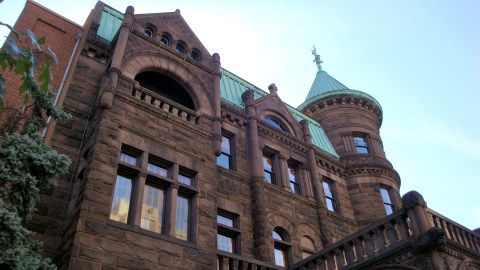
Throughout my thirty years as a museum retail professional, I have often had to explain to others—whether colleagues, friends and family, or complete strangers—how museum stores support their institutions and the public at large. From my own experience and the valuable explanations I have received from colleagues in the Museum Store Association (MSA), I am well-prepared to make the case. Once I share some of the facts, people always express great appreciation for the roles and responsibilities museum stores and their staffs perform.
To shine a light on these facts, MSA founded its signature advocacy day, Museum Store Sunday, which has expanded in the consciousness of the public with each passing year, with more than twelve-hundred museum stores representing all fifty states and the District of Columbia participating to date. This year’s Museum Store Sunday falls on December 1, 2019. To find out how to participate, visit www.museumstoresunday.org.
Now, to prepare you for this year’s event, I would like to offer a compilation of views about why our work in the museum retail field is so vital to museums and the cultural landscape. They might convince you to celebrate museum stores every day, not just Museum Store Sunday.
- Museums are a trusted resource for communities—and the products sold in museum stores reflect the mission, collections, and programs of the museums and cultural institutions to which they belong.
- Museum stores perform integral and multi-faceted work for their institutions—from earning income and extending mission-related programs, to visitor engagement and educational outreach through store products, programs, and experiences.
- Dedicated directly to, and an integral department of, their institutions, museum stores operate as non-profit retailers under section 501(c)3 of the Internal Revenue Code and are a key earned-revenue department of the museum. Revenues generated by museum stores are deposited into the operating budgets of the parent organizations, providing economic sustainability for the institution and cultural engagement for the community.
- Museum stores further the educational mission of their institutions through the offering of products that allow the public to “take home” a part of the museum for their enjoyment and ongoing memory of their museum experience.
- Museums traditionally have broad market bases, and those attending will range from schoolchildren to professionals, from college students to retirees, and from families to single adults. Museum stores effectively serve these diverse visitors by offering a wide variety of items and price points that help capture the interest of each of these various patrons.
- A museum store creates long-term patrons of the museum by engaging children, teens, and young adults in programming and events and with store products that are educational. This is an important demographic that can be reached through the museum store and helps to create future audiences that can support and sustain the museum.
- Products found in museum stores are as intentionally selected as the objects displayed in their respective institutions, with many items developed exclusively by the museum, resulting in distinctive and unique offerings for consumers.
- Museum stores extend the brand of their parent institutions, helping museums communicate, reinforce, and amplify their unique offerings and experiences to the public. When a patron wears a piece of jewelry, looks at a print, reads a book, or plays with a game purchased from the museum store, these products are subtly communicating key marketing messaging.
- Museum stores are vital frontline ambassadors for their institutions—ensuring visitors receive welcoming and enhanced experiences as well as knowledgeable and meaningful engagement from their museum visit.
- Museums foster ongoing appreciation and knowledge of art, nature, culture, science, and history. When consumers purchase a gift from a museum store, they help to sustain the institution’s service to the public.
- Museum stores help their institutions create a sense of pride and ownership in their members, visitors, local governments, communities, and the public.
About the author:
A veteran museum store retailer for over thirty years, Stuart Hata is the Director of Retail Operations for the Fine Arts Museums of San Francisco, the de Young and Legion of Honor. He is responsible for driving a multi-million dollar business at two museum locations and oversees merchandising, store operations, warehousing, product development, retail marketing, licensing, wholesale, and the online FAMSF store. Stuart also currently serves as a Co-Chair of the 2019 Museum Store Sunday Committee and is a Past President of the MSA Board of Directors and MSA Western Chapter.








